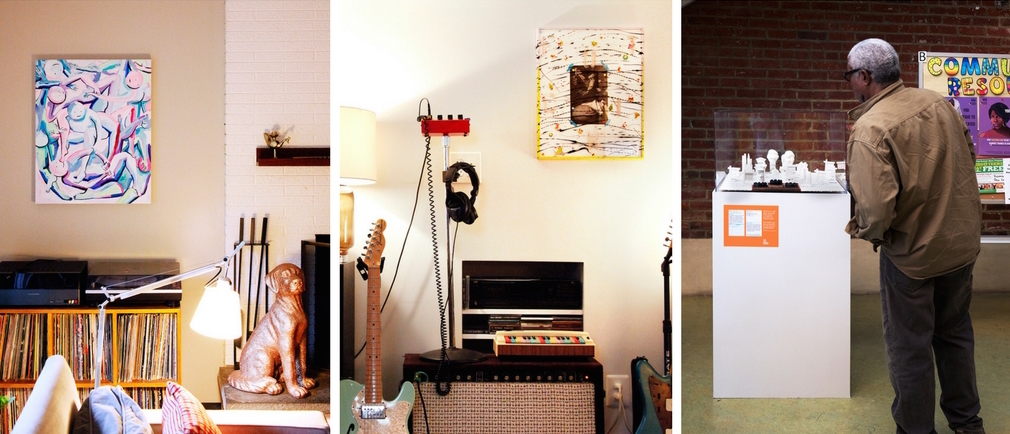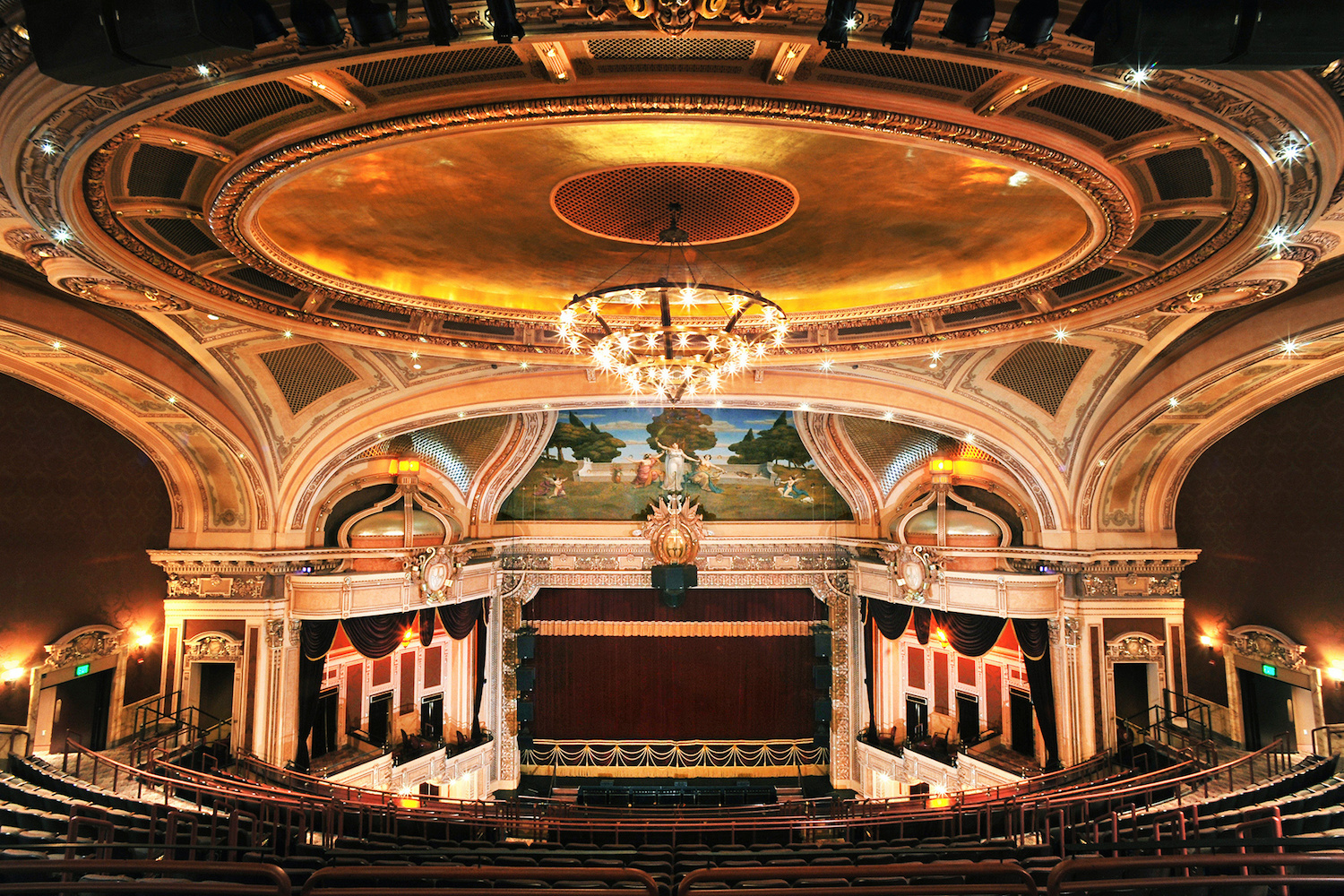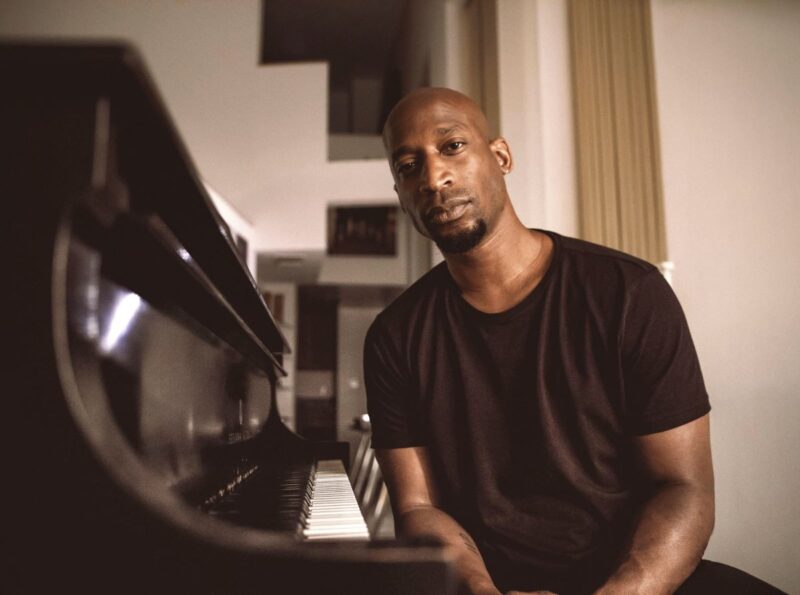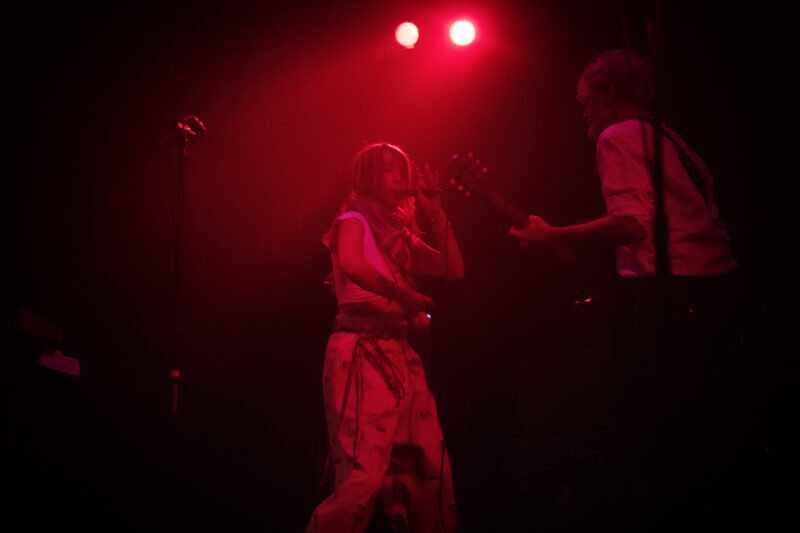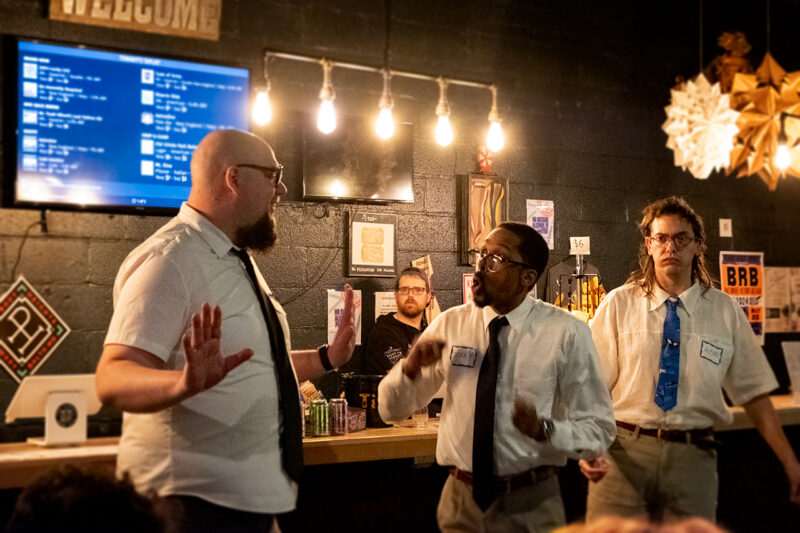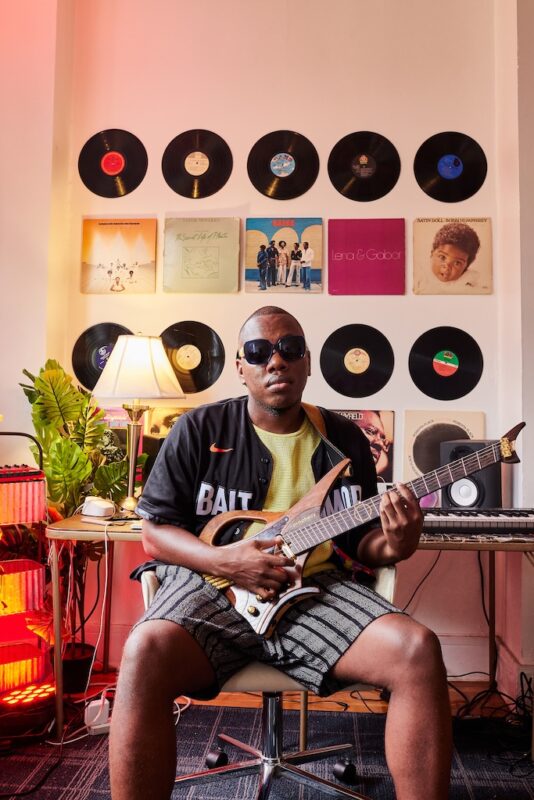An Interview with Ayesha Chugh AKA DJ Ayes Cold by Thea Harvey-Brown
What happens when a new talent arrives on the DJ scene, but fails to fit preconceptions, fails to fall into the categories that fans or promoters find useful? It turns out that a complicated journey awaits, packed with an admixture of brilliant success and bewildering moments, high energy feelings and low, certainly a serious puzzle about the truth of art, including confusion about where that truth fits.
Spending time with Ayesha Chugh, or DJ Ayes Cold (pronounced ‘ice cold’), is a treat, but not in the usual faux-celebrity-warmth way. She shreds clichés—and even in the rebel world of a modern DJ, they need shredding—so you can’t relax into the banter of comfy homilies.
I spent some time talking to Ayesha after seeing her perform at Metro Gallery’s Bollymore night, which featured drag performances, henna, and three DJs, inspired by and in celebration of the sounds and stories of the subcontinent. We met and discussed her style of music, how it fits – and stands out – in DC’s music scene, and the unique challenges she faces in the industry, particularly as a South Asian female in a largely white and male-dominated field. Some of the interview is excerpted for clarity and brevity.
How would you describe your style of music?
I would say it’s a little bit of everything. I started DJing because I love the experience of fusing together different styles of music. I want to do this without the pressure of boxing myself into one genre or another. There’s a term we use in the industry to describe DJs called ‘open-format.’ It basically means you play everything, so I would say I’m an open format DJ, but people tend to misunderstand the term and assume we’ve got no identity or direction. I play a lot of different styles of music, but I’m still a curator by sharing tunes across genres that I distinctly like.
I think the bottom line is, know your lane. Choose and articulate your lane, whatever it is. I’m articulating that open format club music is my lane. For me DJing is very much about the unique challenge of bringing disparate genres together in a set or a mix. It’s not easy, hell I wish I could just play a four-on- the-floor house or techno beat all night and have that feel like a great night. With respect to DJs who do that, for the that’s a slightly different hustle, process, and identity. Personally though, the challenging aspects of bringing together disparate sounds keep me engaged.
Were you scared when you decided to quit your 9 to 5 and work full time as a DJ?
I don’t think I felt the fear until now.
Why now?
Because at this moment in life I’m actually experiencing some of the harder consequences of choosing an unstable lifestyle that has no health insurance and no job benefits. As a self-employed person, I’d say I’m pretty income-poor if we go by formal standards, and it’s been a rough journey. I guess what I mean to say is that when I first started DJing I didn’t think hard enough about how not having the right insurance plan would affect me, especially when it comes to mental health support. Therapy is expensive.
I think if you choose any path and you make sacrifices for it, and it doesn’t go entirely according to plan, it can pose challenges for self-esteem, and I think therapy can really help here. And I think more creatives need to talk about mental health issues. I think that in the DJ community we rarely talk about mental health because people think successful DJs are supposed to have infectious charisma all the time and be life of the party. To do your job well, you’re kind of expected to be constantly on and naturally energetic, to the point of exhaustion. It’s your job. It’s not easy for me to do this because I’ve always veered to being more low than high due to a family history of depression and hypothyroidism.
I guess the bottom line is that I’m severely questioning the viability of my choices at this moment. I love DJing, but I’m definitely at a place in my life where I’m hit by the gravity of my choices. I don’t know why it’s taken me three years to actually have that realization that my quality of life matters. Everything’s been so exciting, and such a whirlwind where I’ve just been like, fuck the future, I’ll deal with it later because right now young. I’m still young, but these days I’m reminded a lot about the sustainability aspect.

What are some of the challenges you’ve faced as a woman and as a person of color (POC) in the DJ community?
There are certain parts of DC that have a heavy contingent of POC DJs, but mostly in the Latinx music and hip hop circles. The whitest scene would definitely be the tech-house community. So, it’s been interesting as a South Asian woman navigating this landscape. It’s been challenging to participate in cultures through my profession that I don’t necessarily have a place in, beyond the profession.
For example, DC has a very strong hip-hop scene. If you’re not black and you’re in that culture, to a degree even – which I am, as a DJ – inevitably you engage hip-hop culture. It complicates your experience because you are engaging music in a culture that you cannot claim, and the power dynamics of this are complex. As a non-black POC person I try to tread carefully. I tell folks I’ve chosen my communities but I’m not native to any of them.
I think the inverse of that in DC is this tech-house music scene, and that’s where you will see mostly white male DJs, at clubs like Flash. I don’t really participate in this scene more out of a difference in musical taste, so I can’t really tell you what it would be like navigating it as a South Asian woman.
Given the relative racial and economic privilege of South Asian bodies over other POC groups in this country – we were ‘model minorities’ after all – I definitely feel the discomfort of being a woman more than I feel the discomfort of my race, in this particular situation.
Have you worked with other female DJs?
I wish I could say that I regularly collab with other female DJs, but it’s been a while.
Do you want to do more of this moving forward?
I definitely want to, I just the collaboration would have to be based first and foremost on a shared creative vision or musical synergy. That’s always been my approach, and it means I’m often working solo, and I’m sure there are folks who look down on me for this. I want to see and feel more solidarity among women and trans artists, but my creative energy is precious and finite so I have to be careful with any collaboration outside my own work. I learned this the hard way.

How’d you come up with the name Ayes Cold? I don’t think of you as an ice-cold person.
My name is Ayesha, and I just chopped in half. You know, I try not to be, but sometimes I just wanna freeze ‘em over. It’s a playful name that reminds me not to take myself too seriously. Although I’ll share heavy deep shit from time to time, the reality is that I’ve got to have a sense of humor about it too. It’s the only way I can make this work. Speaking of which, I think I’m gonna cut all my hair off. Shed some of this ego with the hair.
When is this happening?
This week, if I can make it happen. I’m going to embrace my own androgyny a bit more. Decolonize my body some more. I’m getting fed up with living in a culture where the degree to which you conform to feminine beauty standards affects the degree to which people want to book you / retweet you / talk to you / etc. I witness it a lot. And when it’s not an obsession with narrow femininity it’s some other narcissistic or image obsessed thing. The pink elephant in the room is that these are preoccupations defined by a patriarchal entertainment industry that we work in.
I think if you work as an entertainer, and you actually have a conscience and are empathetic you reach a point where you will get fed up. You get fed up with all the Instagram shit, you get fed up with the expectation to constantly have desirable content. The funny thing is this is just the beginning and I’m already fed up. In some ways to cope I’m turning inward and figuring out how to simplify my life to restore the purity of my relationship with music.
I think I’m getting there, and I’m choosing to cut off my hair to be the symbol or marker of that intention. Plus, I’ve never felt a hundred percent comfortable performing femininity. Cutting my hair off is definitely a step closer to honoring these feelings. I could say, “women with short hair are still feminine!” but that only reinforces rigid ideas about womanhood and femininity. I’m all about moving away from femininity or masculinity as vehicles for self-expression.
***
When a party is a job instead of a party, it takes on a new perspective. When you need massive, visible energy to make a show succeed, you may be without energy for other crucial moments in life, including some creative moments. And when music is a vocation instead of an avocation, it too is freighted with a double burden: it has to succeed as art, and as a commercial venture.
These are not avoidable tensions. They are generally buried beneath the high-minded clichés of the art world, but the tensions very persistence in the real world is both a daily reality and, in its own way, a creative force as well. Ayesha has found her own path, at least for the moment, across these dueling forces, these mixes. She has found a lane where we can sample her talent, and where she can take that creative force home with her afterwards, and build a life around it.
DJ Ayes Cold plays at U Street Music Hall on December 9th for a night of east coast club tunes with DJs JayHood, FREEEZ, and Sumtime. You can also catch her at Marvin on December 5th, or when she returns to U Street with Nadastrom + friends on NYE (12/31). Check out her other music and mixes on SoundCloud.
Photos by John Kim
